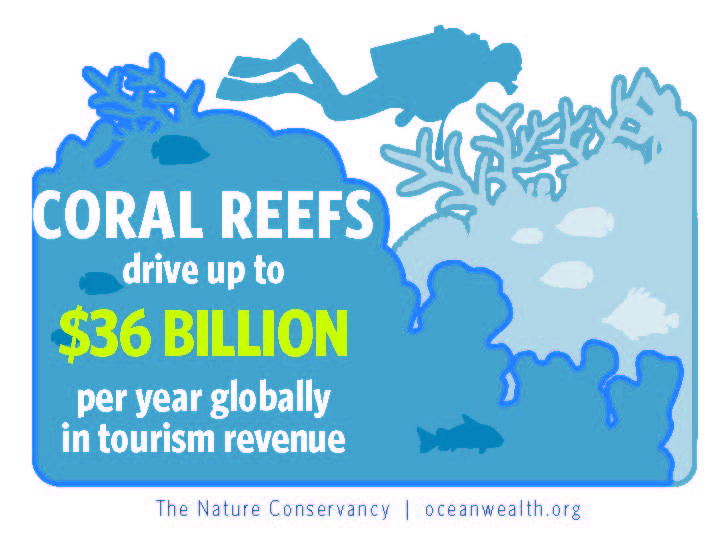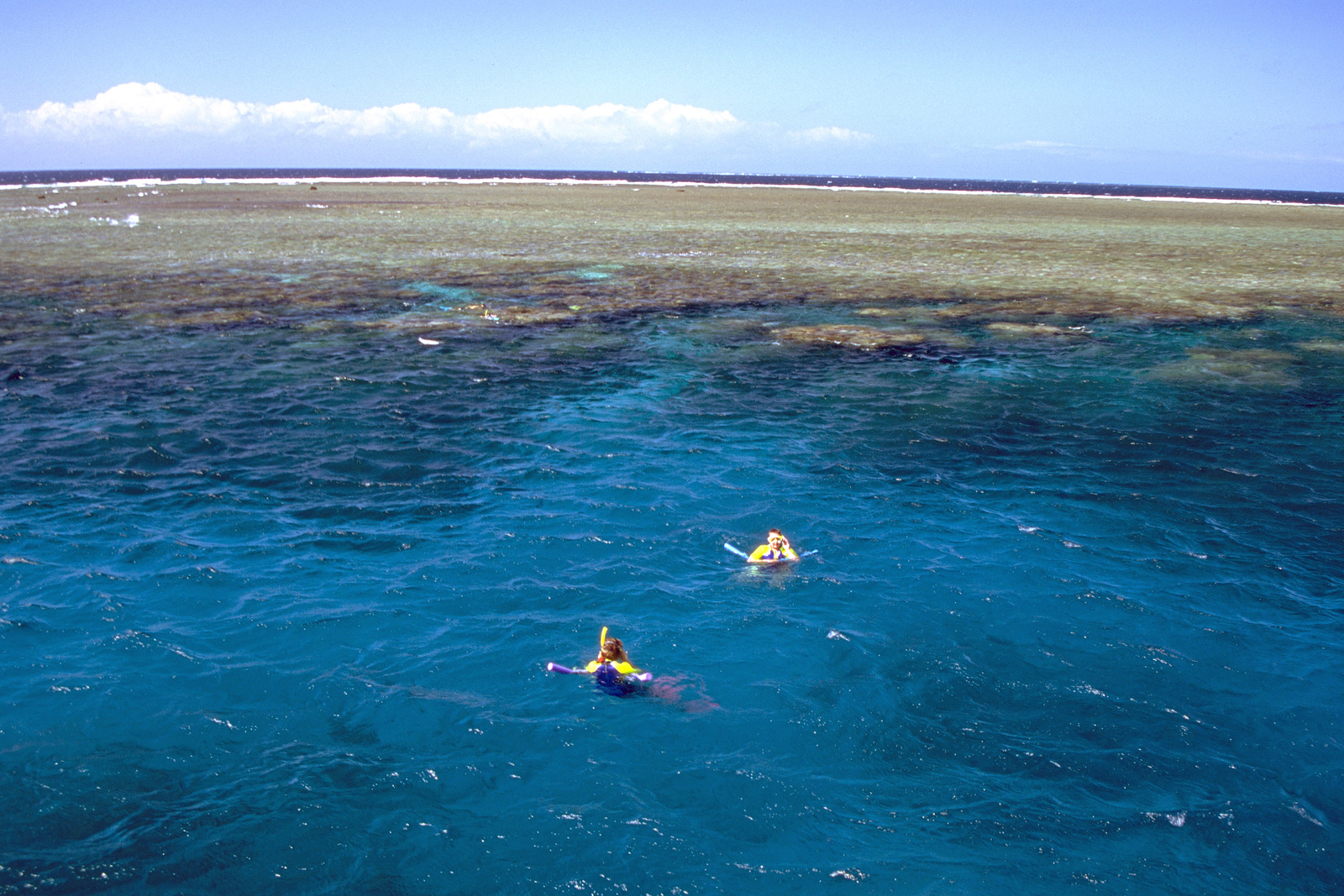
As the largest living structures on the planet, coral reefs are home to 25 percent of all marine species and are important places for fish and other animals to eat, bring up their young and hide from predators. Coral reefs also provide amazing resources for people including food and income that sustains 500 million people, medicines, protection from storms as they break wave energy and incredible places to play and learn.
But coral reefs worldwide are declining from multiple threats, ranging from direct destruction by coastal development, through to overfishing, pollution and climate change. While rising sea temperatures are having dramatic impacts in many areas, it seems likely that reefs can survive or quickly recover from climate change impacts if other threats are reduced or removed. In addition to dealing with climate change at the international level, which will take years, it is critical to deal with local reef stressors as a means of building near-term resilience so that the benefits from this first line of defense will continue.
Explore Coral Reef Ecosystem Services
Top image: ©Jeff Yonover. Tiles (left to right): © Jonathan Kerr, © Nick Hall, © Ron Geatz




